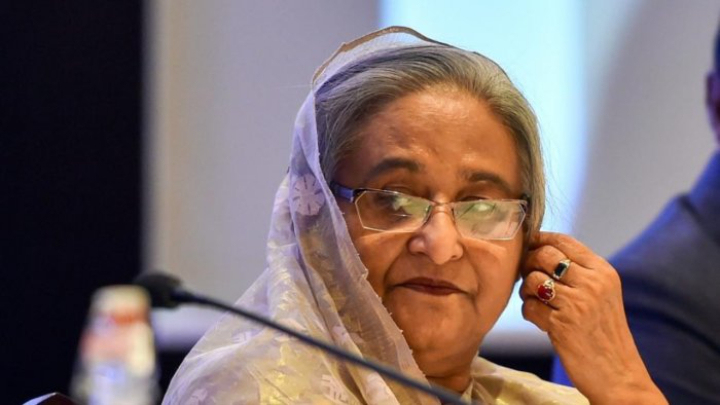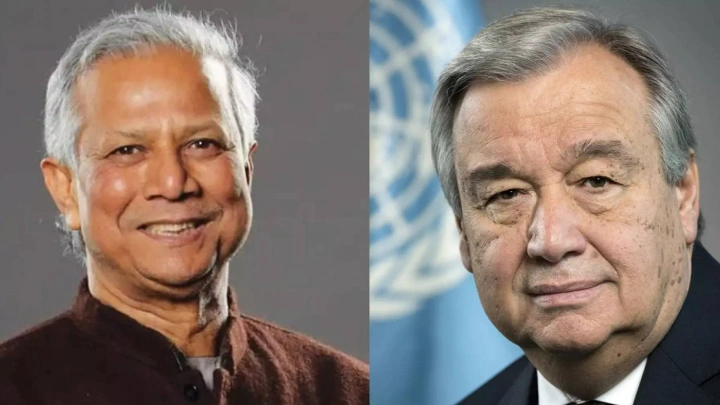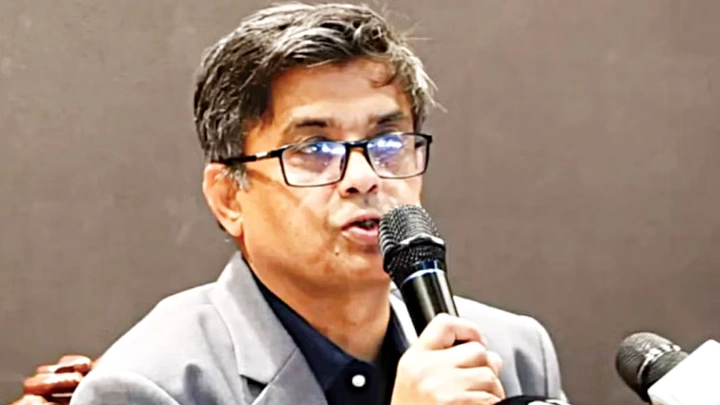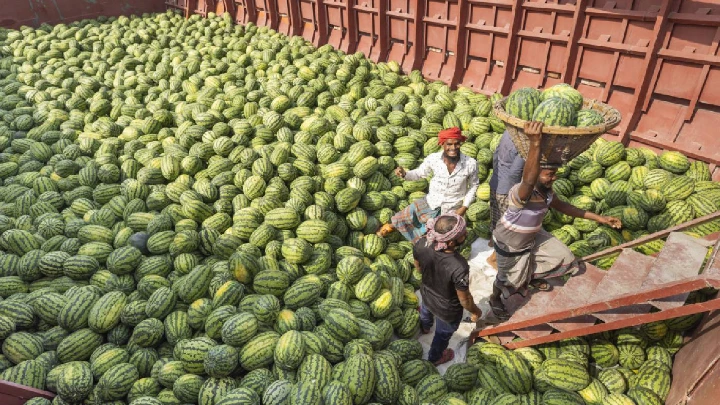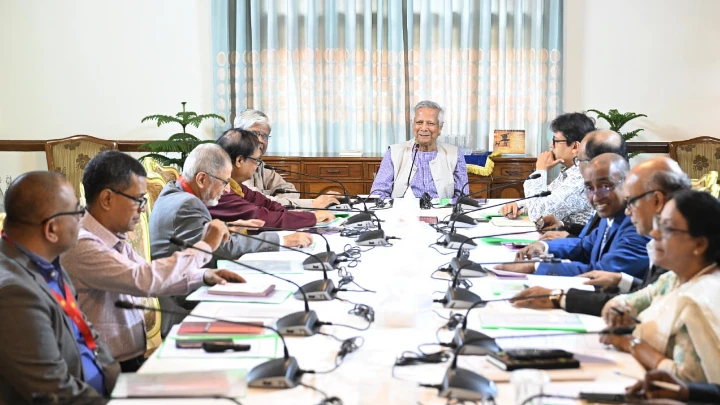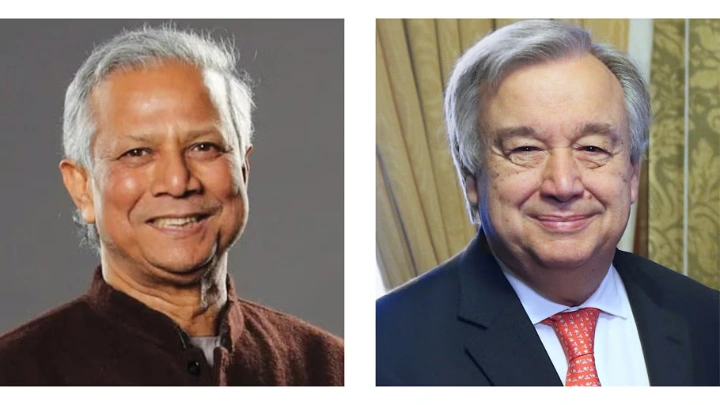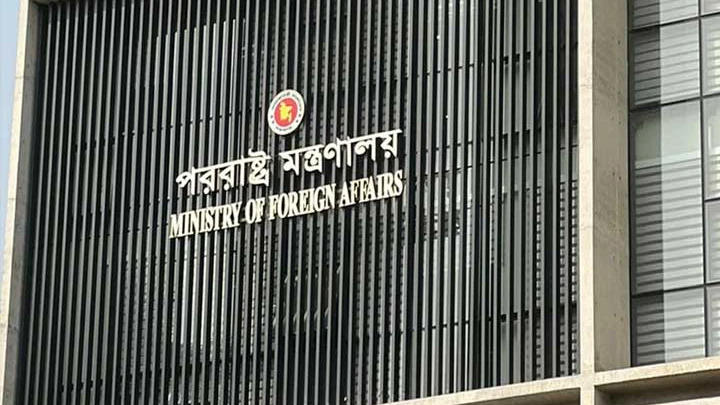PM Sheikh Hasina's visit to India : Dhaka and Delhi on better terms than ever?
Shining BD Desk || Shining BD
Last month, when a leading Bangladeshi newspaper quoted the country's foreign minister, A K Abdul Momen, as saying he had urged the Indian government to ensure Prime Minister Sheikh Hasina remains in power, it stirred a hornet's nest in his country. The garrulous Momen, therefore, was quick to deny the remarks even though the newspaper had said it had a recording of his utterances while participating in Janmashtami celebrations in Chattogram, Bangladesh.
Denials notwithstanding, Momen's remarks did seem like a Freudian slip, given that India has put its full weight behind the Sheikh Hasina-led government. Dhaka has reciprocated in equal measure, and as a consequence, bilateral ties have flourished during her tenure. India, therefore, would be pleased to see the Awami League party of Sheikh Hasina, who returned to power for a third consecutive term in 2018, re-elected when parliamentary elections are held in Bangladesh in 2023. New Delhi would like the 'Sonali Adhyay" (golden chapter), a term it often uses to describe the state of the bilateral relationship, to continue. The opposition Bangladesh National Party (BNP), whose key ally is the Pakistan-leaning Jamaat-e-Islami, after all, gave New Delhi a hard time when in power.
Momen's remarks came at a particularly inopportune time, just ahead of Sheikh Hasina's visit to India from September 5 to 8, causing acute embarrassment for her government and party.
The garrulous Momen, therefore, was quick to deny the remarks even though the newspaper had said it had a recording of his utterances while participating in Janmashtami celebrations in Chattogram, Bangladesh Denials not withstanding, Momen's remarks did seem like a Freudian slip, given that India has put its full weight behind the Sheikh Hasina-led government. Dhaka has reciprocated in equal measure, and as a consequence, bilateral ties have flourished during her tenure. India, therefore, would be pleased to see the Awami League party of Sheikh Hasina, who returned to power for a third consecutive term in 2018, re-elected when parliamentary elections are held in Bangladesh in 2023.
Having remained India's most steadfast ally in the neighbourhood, Sheikh Hasina's visit is crucial for both New Delhi and Dhaka as they seek not only to further cement bilateral relations but also to protect each other's strategic interests.
Her government was swift to throw out insurgent groups from India's North-East region operating from Bangladeshi soil, while also being largely mindful of Indian strategic interests while dealing with China. While Bangladesh did join China's Belt and Road Initiative (BRI), it has put some projects on hold.
Bilateral connectivity has received a boost, with India having revived pre-1965 rail links between the two countries. For India, Bangladesh is vital for connectivity to its far-flung North-East region, enabling it to bypass the vulnerable Siliguri Corridor, aptly described as the 'Chicken's Neck'. Maritime connectivity to the North-East via Bangladesh's Chattogram port has already seen several trial runs being conducted.
With her official visit to India possibly the last one before the 2023 elections in Bangladesh, Sheikh Hasina will need to show substantive outcomes to her domestic constituency. Having failed to deliver the Teesta waters sharing pact to Bangladesh owing to its own domestic politics, India has now lined up an MoU for the interim sharing of the waters of the transboundary river Kushiyara instead.
The MoU was finalised after the Joint River Commission met at the inter-ministerial level in New Delhi on August 25 for the first time in the last twelve years. It is rather unfortunate that such a meet was held after a long gap, even though the two neighbours share as many as 54 transboundary rivers, and the potential to make use of water resources for the benefit of both is tremendous.
Bangladesh will also be seeking to boost bilateral trade, which continues to remain heavily lopsided in India's favour. In 2021, India exported goods worth $14 billion to Bangladesh, while only $2 billion worth of products were imported. For all its declarations of 'Neighbourhood First', India has been unable to withdraw the anti-dumping duty levied since 2017 on jute imports from Bangladesh.
The trade imbalance remains a sore point with Dhaka and needs to be addressed even as the two sides look at putting in place a Comprehensive Economic Partnership Agreement (CEPA). Being seen as pro-India has come with its perils for Sheikh Hasina. She has had to contend with criticism of being too accommodative of Indian interests without an equal measure of reciprocity. In the years since she returned to power in 2009, her government has remained steadfast in its support for India. This, despite prickly matters such as the targeting of Muslims in India, the name-calling of illegal Bangladeshi migrants as "termites" by home minister Amit Shah, the contentious Citizenship Amendment Act (CAA) that includes Bangladesh within its ambit and the National Citizens Register ( NRC).
Yet another threat to the two nations' security interests remains the continuing presence of over one million Rohingya refugees in Bangladesh who fled Myanmar's Rakhine state five years ago. Bangladesh is worried about the possible radicalisation of the Rohingyas, as is India. With Bangladesh not having succeeded in its efforts to see them return, it has been pleading with India to prevail upon Myanmar to take the refugees back. This will be a top priority during Sheikh Hasina's discussions in Delhi. Wary of getting directly involved in the Bangladesh-Myanmar tussle over the Rohingyas' repatriation, India has instead chosen to create enabling conditions like housing in the Rakhine state to encourage the refugees to return. But they remain in Bangladesh, fearful of returning to Myanmar.
With the world's largest democracy playing host, the Bangladeshi PM will also be hoping to seek greater acceptability of her government by the West, where her rule is perceived as authoritarian. This is not without reason. The Opposition has been decimated, and there are numerous instances of enforced disappearances in Bangladesh, with the government suspected of being involved in them. Despite the development gains made by Bangladesh and its economic growth under Sheikh Hasina's stewardship, accusations of human rights violations do take away some of the sheen from her government's achievements.
In December last year, the US imposed sanctions on Bangladesh's Rapid Action Battalion (RAB) and six of its serving or former officers, including its current head, on charges of human rights violations. With elections in Bangladesh not too far away, countries like the US, UK and Japan have already begun asking that they be "free and fair". In 2018 too, when the Awami League scored a sweeping victory winning 288 of the 300 seats, questions were raised about the fairness of the elections. Both India and the world at large will be keeping a close eye on the next elections in Bangladesh. For New Delhi, a lot is at stake, much more than the western countries.
Shining BD

